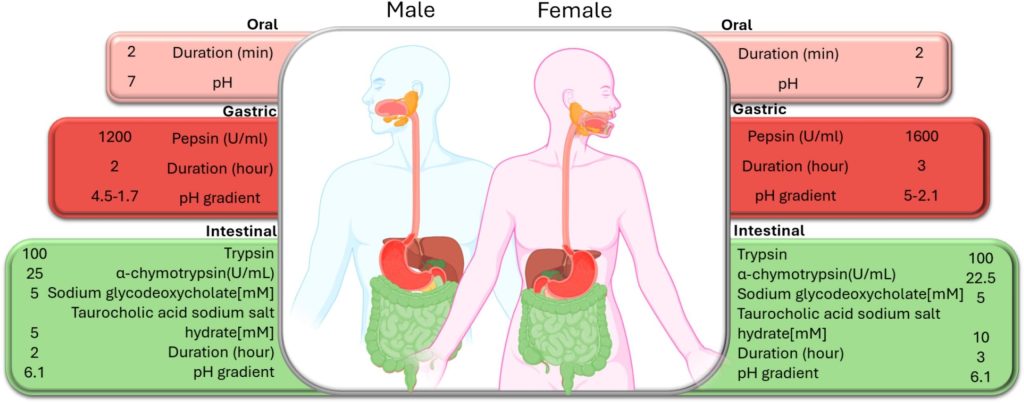Not One-Size-Fits-All: Why Gender Matters in Food Engineering
Technion scientists propose a new frontier in food science: tailoring diets based on gendered digestive efficiencies
A study conducted in the Technion – Israel Institute of Technology Faculty of Biotechnology and Food Engineering has revealed significant differences between male and female digestive systems: the digestion of milk and milk alternatives is not identical between the sexes. The findings were recently published in Food Research International.
The research was led by Prof. Uri Lesmes, Ph.D. student Leehen Mashiah, lab manager Dr. Carmit Shani-Levi, and student Eden Beck, who participated in the study during her bachelor’s degree.

According to Prof. Lesmes, “The motivation for this research stemmed from the global shift toward plant-based diets and the rise of meat and dairy substitutes. Given the growing consumption of these products, we wanted to understand whether men and women derive the same nutritional benefits from them, focusing specifically on milk and milk alternatives. While previous studies have examined digestion in the average adult, few have considered gender differences.”
The research team developed a unique digestion model that simulates male and female digestive systems. The results were surprising. In the male digestion model, milk proteins were broken down more efficiently, while in the female model, oat-based plant milk showed higher protein digestion efficiency. The researchers suggest that these findings may align with our knowledge of hunter-gatherer societies — or more accurately, (male) hunter — (female) gatherer societies — where men typically provided animal-based foods and women plant-based ones. Although food was shared within the community, it is likely that men consumed more animal-based products and thus evolved to digest such proteins more efficiently.
In-depth analysis revealed differences in the concentrations of amino acids and peptides (protein fragments) generated during digestion. In men, more antimicrobial peptides were found; in women, a peptide linked to bone formation (osteoanabolic peptide) appeared more prominently. This is particularly intriguing considering that osteoporosis is significantly more common among older women: one in three women over 50 will experience an osteoporotic fracture, compared to one in five men. This may point to a unique nutritional advantage for women in choosing plant-based protein sources.

In conclusion, the study highlights the impact of biological sex on food digestion and recommends factoring this into nutritional policy, especially future food engineering. Prof. Lesmes notes, “Food processing enabled the rise of modern humans. It’s time to harness research like this for the next phase in food engineering in the 21st century — one rooted in science, nutrition, and health.”
The research was supported by the Israeli Ministry of Innovation, Science and Technology, and the Technion Food Engineering Research Fund.

For the full article in Food Research International click here
Photo Credit: Nitzan Zohar, Technion Spokesperson office



